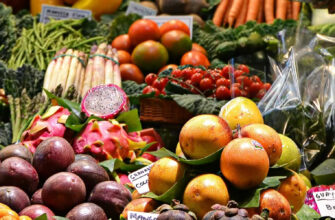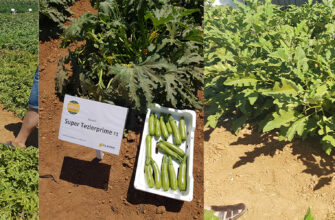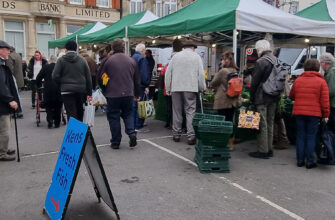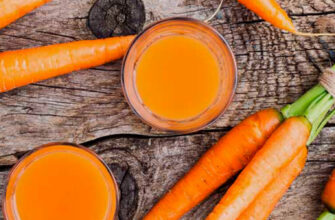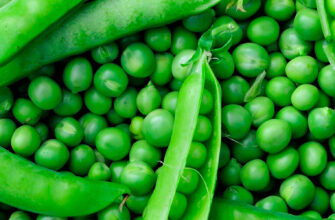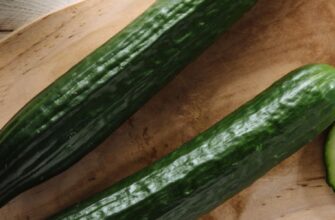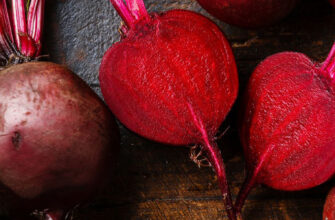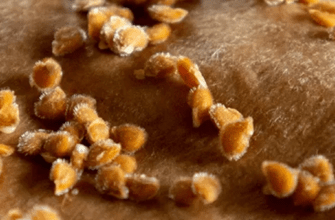The best way to understand Georgian vegetable consumption culture is by visiting the local market in the resort city of Batumi. It is here that you can truly see the full color and taste preferences of the local people – the Adjarians.
The Batumi market “Boni” is located in an industrial-residential area, near the seaport.
You can get there by local transport, but it’s easier to take a taxi (BOLT). Taxis in Batumi are relatively cheap, so getting around the city is easy and cost-effective. All prices you see in the photos of the vegetable stands are in lari.Lari is the national currency of Georgia: 1 lari equals $0.37.
The prices are given per kilogram. At the market, prices are much lower than in the small shops scattered throughout the city. The photos were taken in early spring 2024.
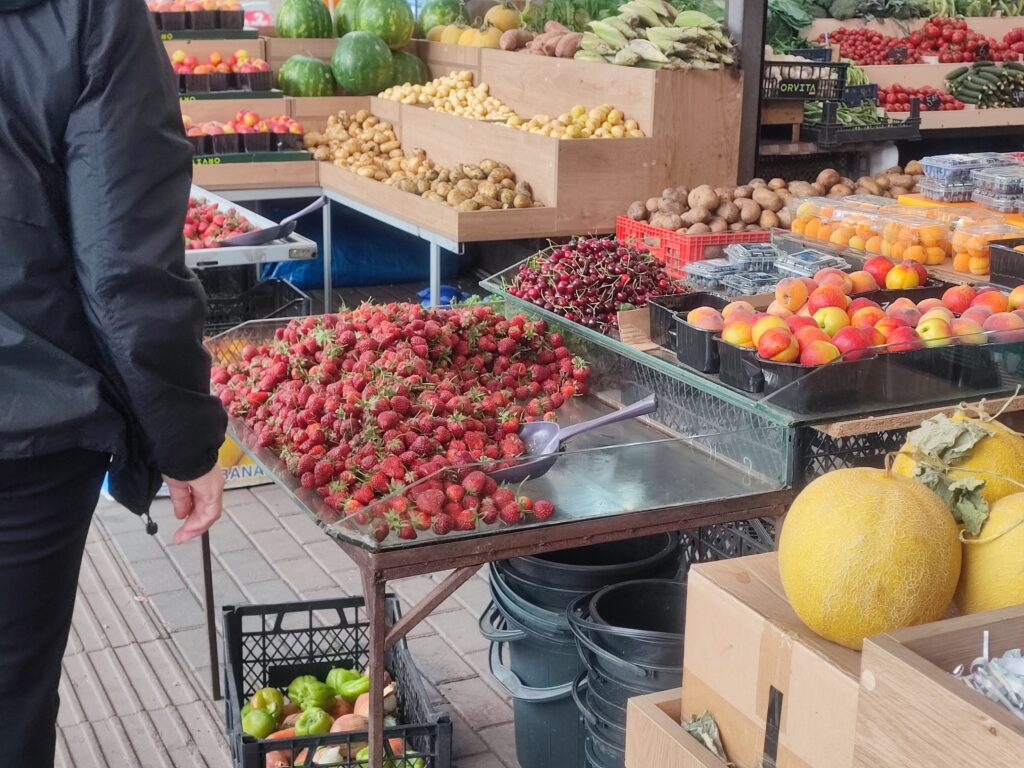
The market area is not very large. Near the entrance, you can find a “spontaneous” market — elderly women and men who have brought produce from their own gardens sell it right on the pavement, in buckets or boxes.
Within the market territory, there are many small shops, tents, and food stalls. Here you can buy plants, spices, fruits and vegetables, tobacco, ground coffee and tea, household items, dried fruits, and groceries.
The main part of the market is located in a large two-story building, which helps maintain a pleasant and cool temperature inside even on hot summer days.
Life here is bustling all year round! Loud Georgian men and women call out to customers, argue with each other, shout across the aisles — sometimes they even allow themselves to smoke cigarettes, sing songs, or play backgammon and cards.
Be prepared for vendors to grab your hands and try to offer you a taste of their goods in hopes of persuading you to buy more.
Don’t refuse the tasting — first of all, it’s considered impolite (remember Georgian hospitality!), and secondly, it’s a great chance to sample and choose truly tasty products and discover something new.
At the market and in shops, you are expected to bargain (ask for discounts), because usually prices for tourists are higher than for locals.
Be ready for the fact that the market is not perfectly clean — sometimes the mess and dirt might even seem intimidating — but this is the real Georgia.
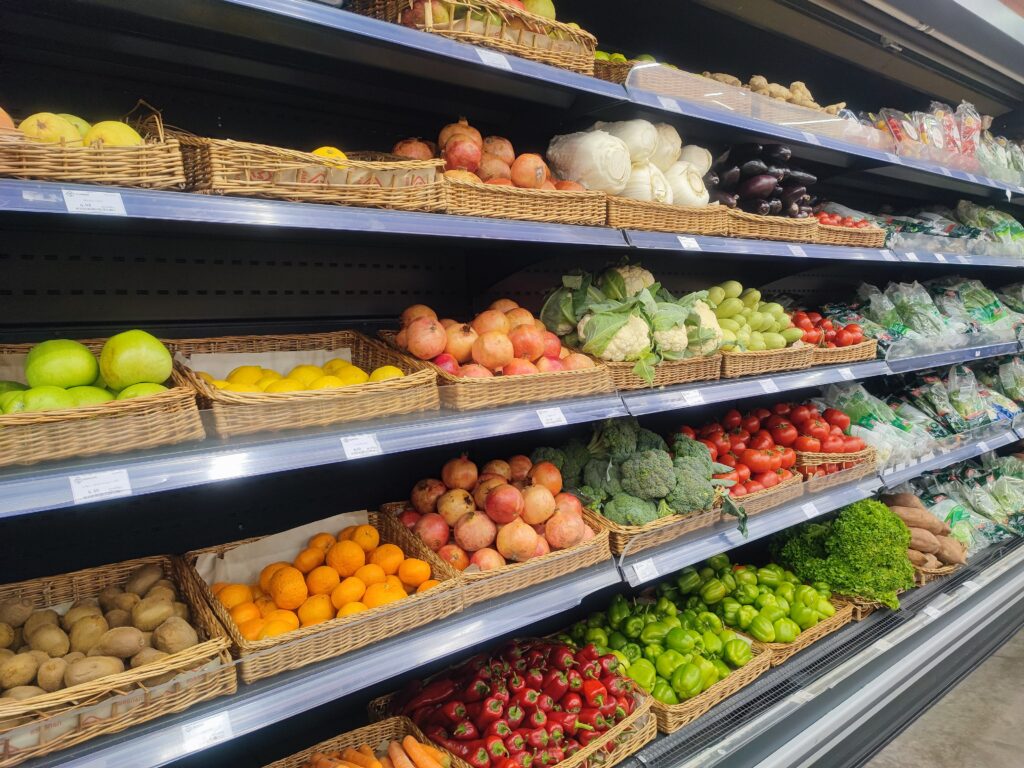
Visually, the market is divided into sections.
In the traditional Georgian products section, you can buy:
- Sweets: churchkhela (made from grape juice, nuts, and flour), pastila from the juice of various fruits, honey and other honey-based products, dried fruits (I highly recommend trying dried persimmons).
- A variety of sauces and preserves. Sauces are packed in plastic bottles, which makes them convenient to buy as gifts to take home.
There is a huge selection of locally produced nuts: hazelnuts, almonds, walnuts, and more.
The market also offers a wide assortment of wine and chacha (chacha is a local homemade spirit). But be careful with the tastings here — every seller will try to offer you a drink, and before you know it, a few liters of wine might end up among your purchases.
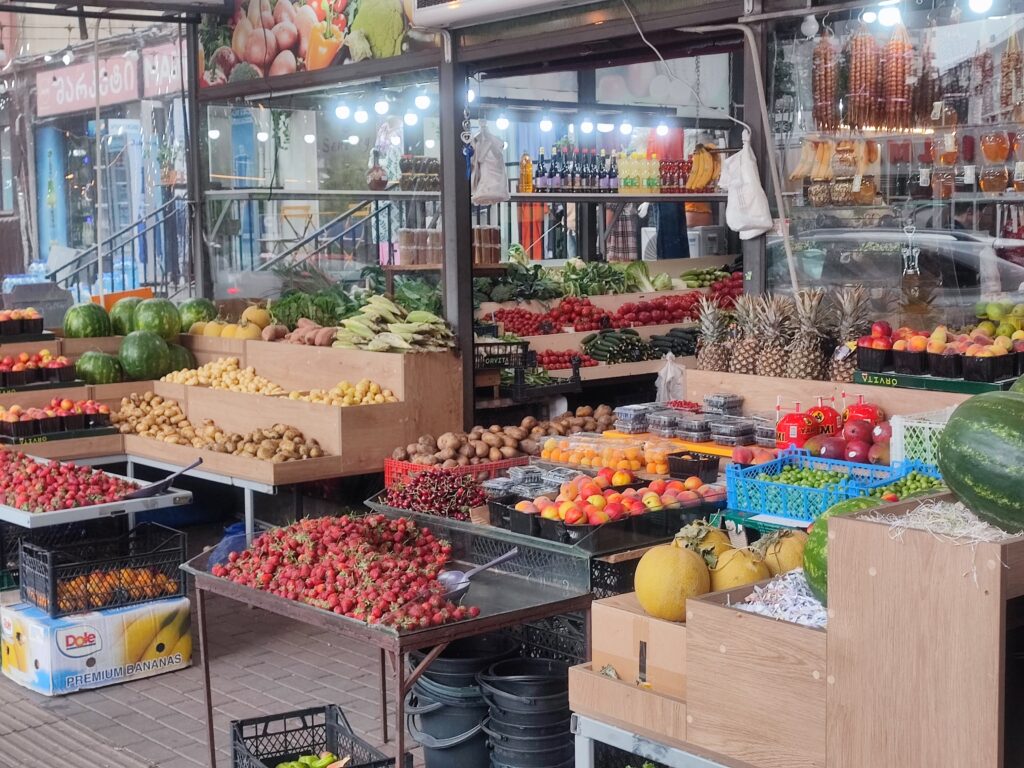
In the fruit and vegetable section, you will typically find produce from local farmers, although there are also imported items depending on the season.
- Tomatoes, mostly local (red and pink beef tomatoes, cherry tomatoes of various colors, large plum tomatoes) – the most popular vegetable. Summer prices start from 1 lari.
- A wide variety of greens: lettuce, tarragon, cilantro, dill, parsley, basil – all fresh, fragrant, and locally grown. Georgian cuisine uses a lot of herbs and leafy aromatic plants. This is probably the most stable crop in terms of price and demand.
- Cucumbers, local long ones (15–20 cm); white cucumbers are especially popular in Georgia.
- Sweet peppers: local white varieties cost around 1 lari; blocky (bell-shaped) peppers are mostly imported.
- Hot peppers are widely grown and consumed in Georgia.
- Sweet corn, per ear – 0.50 to 1 lari. Mostly white corn, not very sweet, but yellow super-sweet corn is gradually becoming more common at the market. (Why white corn is traditional – we’ll share in a future article.)
- Eggplant – another popular vegetable used in many dishes, but currently a lot of it is imported due to cultivation difficulties. Even imported, it remains quite affordable.
- White cabbage.
- Local watermelons.
- Carrots, beets, onions, garlic, early watermelons – these are usually imported from other countries.
Be sure to try pickled vegetables – they are extremely tasty and aromatic, with recipes passed down through generations.
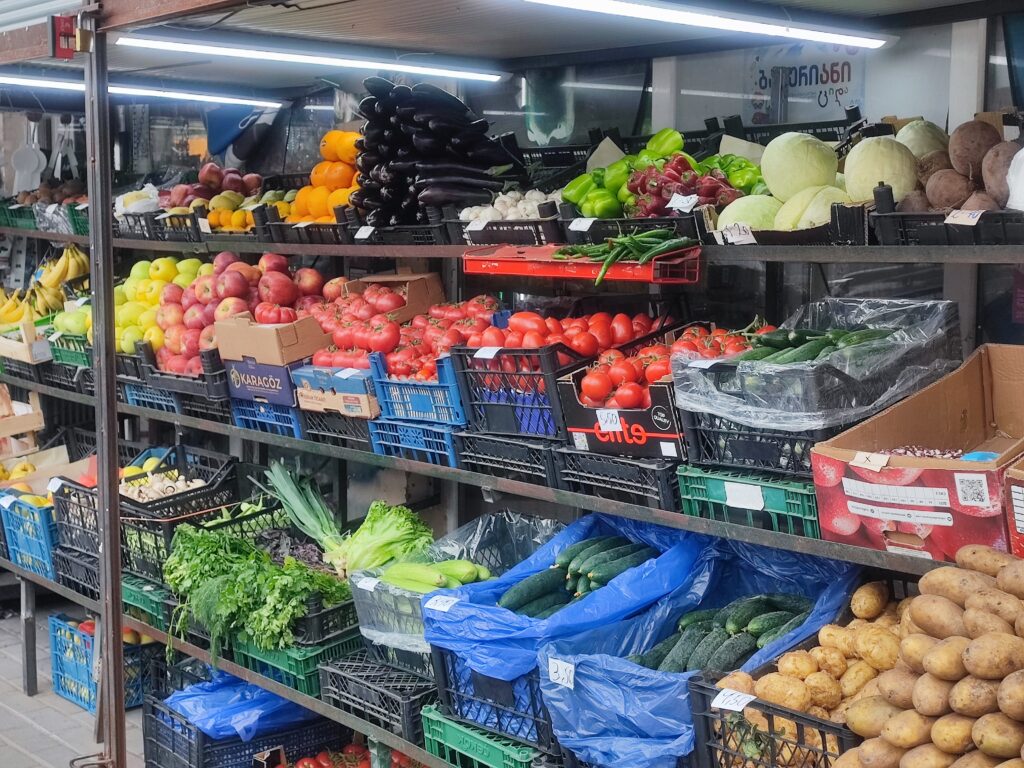
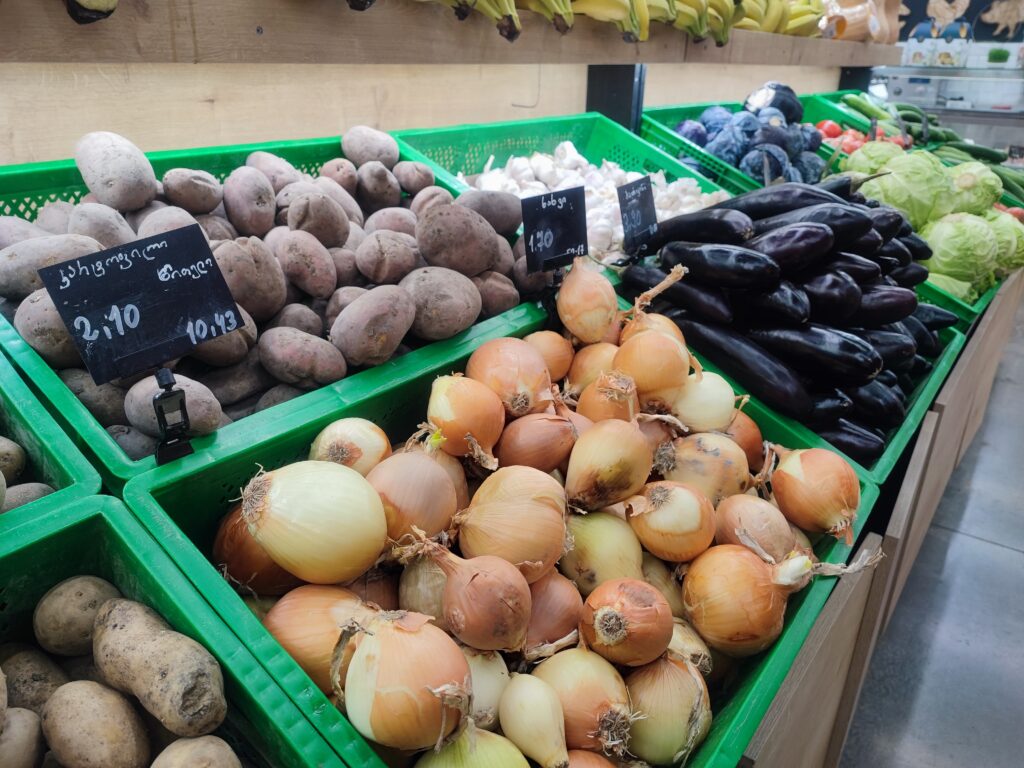
You can buy a wide variety of fruits; the assortment is large:
– Apples, mandarins, persimmons, grapes, kiwis, plums, lemons, pomegranates – locally grown.
– Bananas, strawberries, cherries, pineapples, and other exotic fruits – imported.
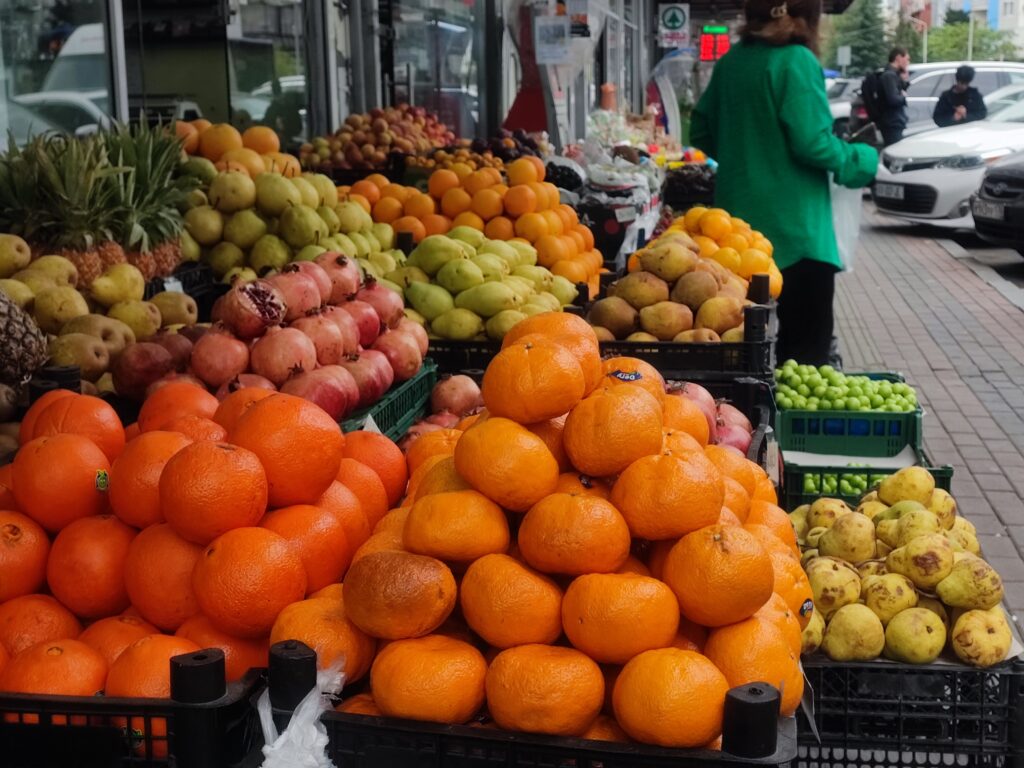
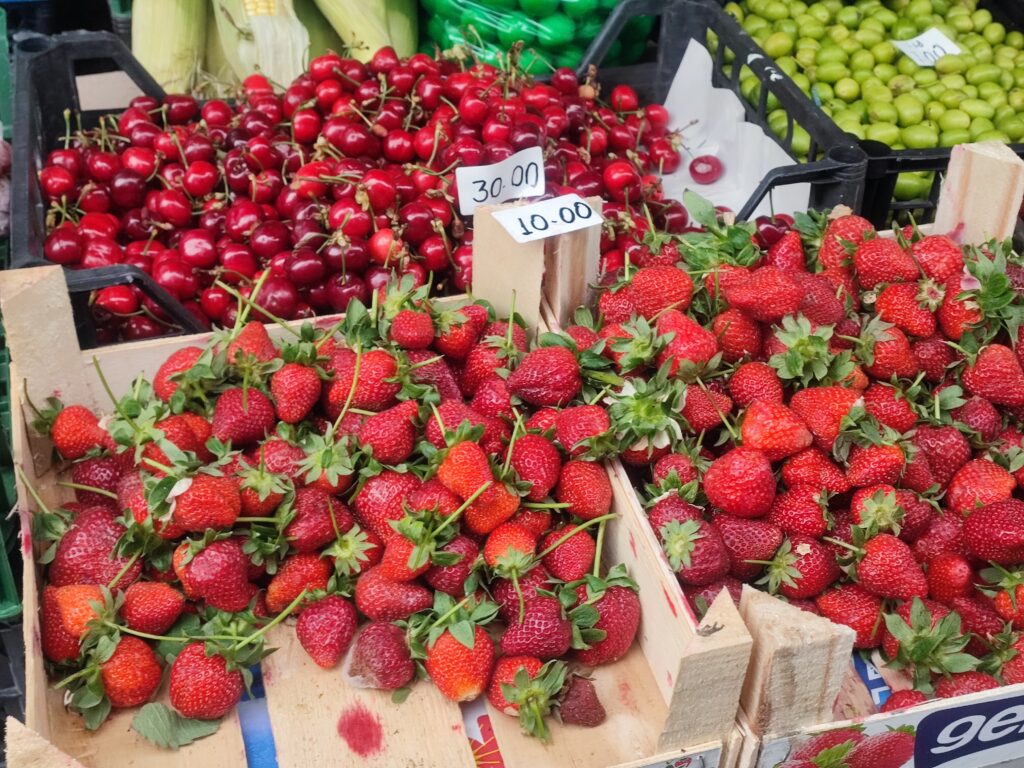
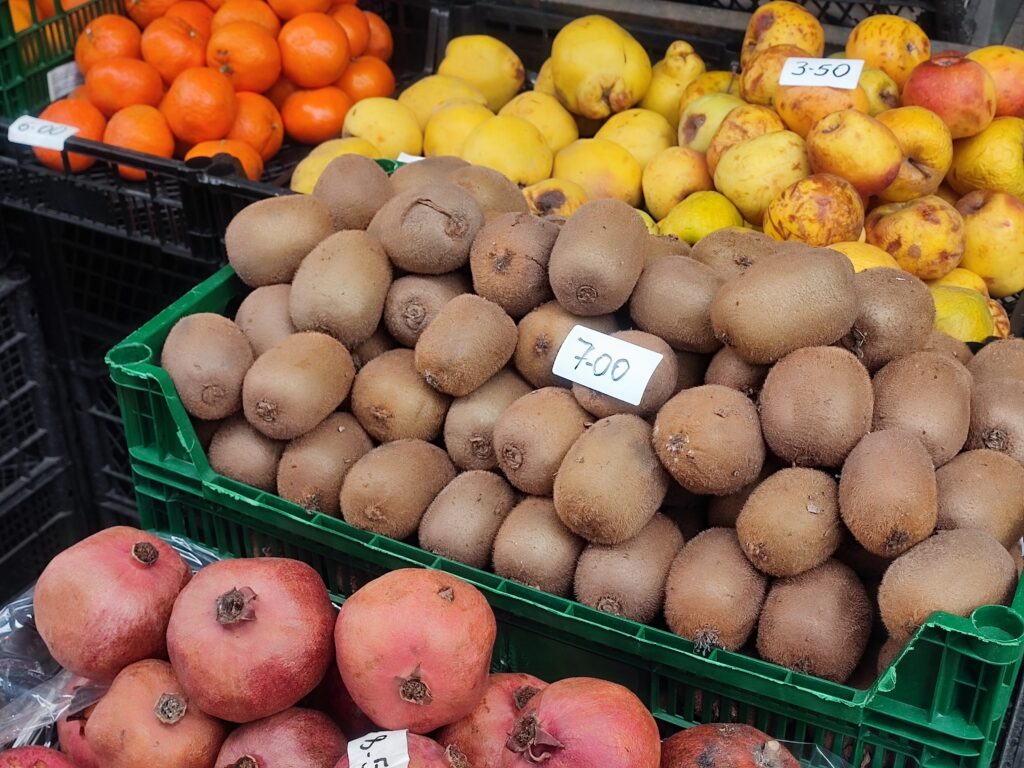
Meat Products Section
There is a large and diverse selection of meat. The meat is fresh and of high quality. You can buy tongue, liver, chicken, and other types of meat. Who better than Georgians to know their meat – we’ve all heard of Georgian shashlik, which you can even buy raw right at the market!
There is no fish section here. The fish market is located elsewhere – right on the Black Sea coast, beyond the port. At the fish market, you can buy anything you like and have it fried at special nearby restaurants.
Fish market in Batumi
You can simply visit the market as a sightseeing experience and have dinner at a fish restaurant by ordering from the menu. Sometimes these restaurants are so crowded that it’s best to try booking a table in advance.
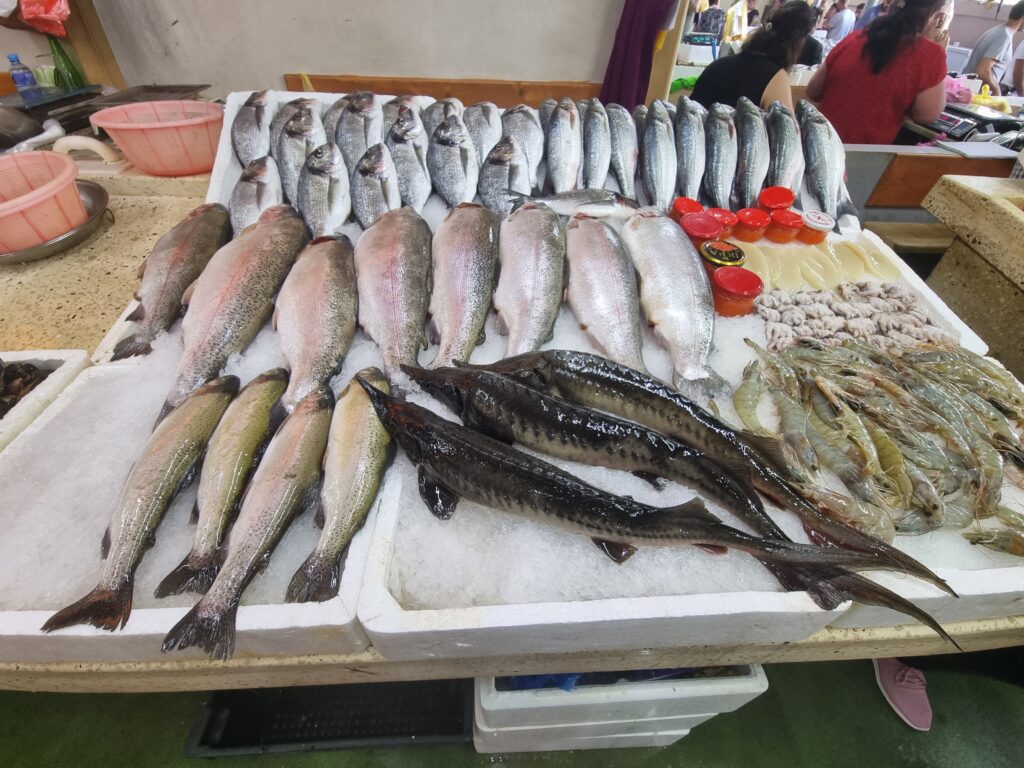
Video from the fish market in Batumi, Georgia
I highly recommend visiting both the vegetable and the fish market. You might be slightly shocked by what you see, but it’s totally worth it. These are unforgettable impressions – not only from what you’ll see, but also from what you’ll taste and buy. Georgia means deliciousness and heartfelt hospitality!
If you have found a spelling error, please, notify us by selecting that text and pressing Ctrl+Enter.

